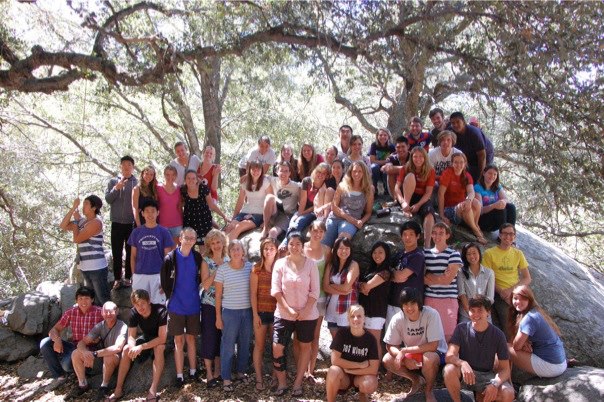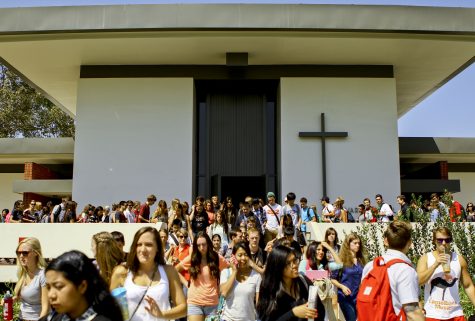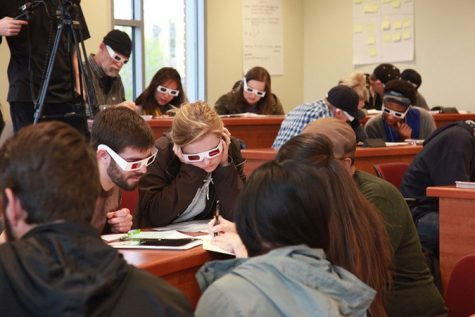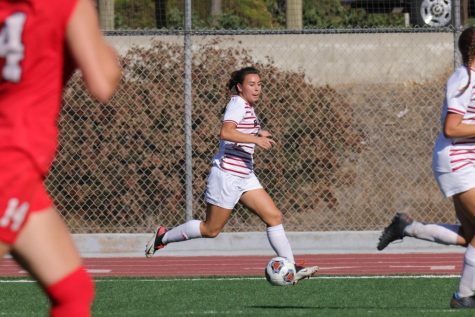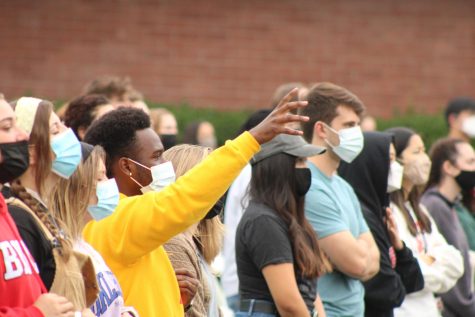Club of the week: Mu Kappa aids students in smooth transition
The Mu Kappa club, geared to help third culture kids adjust to life in America, has been an active presence during orientation for global students at Biola this year.
October 30, 2012

The children of missionaries experience culture quite differently than those who grew up in the homeland of their parents. They live in what they call the third culture, the culture made in the tension between the culture of their parents and the country they currently live in. As a result, in 1985 Taylor University in Indiana established Mu Kappa, which spread to many other Christian universities, including Biola. Mu Kappa’s purpose is to aid missionary kids, or MKs, in adjusting to American culture and life at college, as well as to be a place for them to get together with others who relate to their experiences.
For the first time this fall, Mu Kappa had an active presence in the orientation for global students. Senior nursing major Heidi O’Dell, club president and MK from Japan, explained the club’s added role.
Adjusting to the States without parents
“A lot of MKs come from [the orientation] and we had some of our own sessions we ran because a lot of them don’t go to reentry seminars when they come back to the states,” O’Dell said. “So we try to give them a few tools to use for adjusting to Biola.”
O’Dell also brought to light how many MKs entering Biola are coming back to the United States for the first time without their parents.
“They adjust quickly for the first two months, but once the third month hits, they start to realize they have to stay here. That’s when a lot of them start to get depressed and have struggles,” O’Dell said. “All the things they didn’t like, but brushed off, they have to deal with now.”
Noticing a disconnect and finding common ground
Sophomore intercultural studies major Christine Kazar, an MK, noted the disconnection in coming to America from Hungary. She felt the differences and difficulties of being away from her culture and language, and noted the hand Mu Kappa had in helping her find others who had a common ground in being overseas and disoriented.
For club vice president Nathaniel Brown, a sophomore music major from Czechoslovakia, the friendships he made through Mu Kappa made the adjustment to Biola much easier.
“Right from the start, I got to build friendships with international students and other MKs who were on the same page,” Brown said. “So that really helped me transition into Biola and helped it feel like a family right from the start.”
Weekly dinners, retreats and Orphan Night
Aside from sessions on assimilation and adjustment into American culture and Biola during orientation, Mu Kappa also has events throughout the year with its members, including weekly dinners in the Caf, retreats and Orphan Night during Parent Weekend, where, since their parents are abroad, they get together and enjoy each other’s company.
Each semester, Mu Kappa retreats to a cabin provided by Missionary Kid Ministry, run by Dale and Sharon Wisner. Freshman Marcos Aulie, from Mexico, felt like he was seeing family even though he didn’t know any of the people at that point in the semester.
“We already had ties through shared experiences, even though we haven’t lived them together,” Aulie said. “It was kind of like a family reunion.”
Fostering intentional unity and global languages
Aulie also said he greatly enjoyed the conversation and intentionality that brought the members together. One occasion that fostered intentional unity happened during the club’s worship on a Sunday morning, when everyone began singing in their own languages.
“It wasn’t chaotic at all,” said Kazar. “It was this orderly meeting where we were singing and worshiping together.”
This moment proved to be a uniting factor for students hailing from all parts of the globe.
“We had songs like ‘Here I am to Worship,’ ‘Heart of Worship’ and ‘How Great is Our God’ in five to seven languages,” Brown said. “It was incredible to see how big God was that he could understand every single language.”


